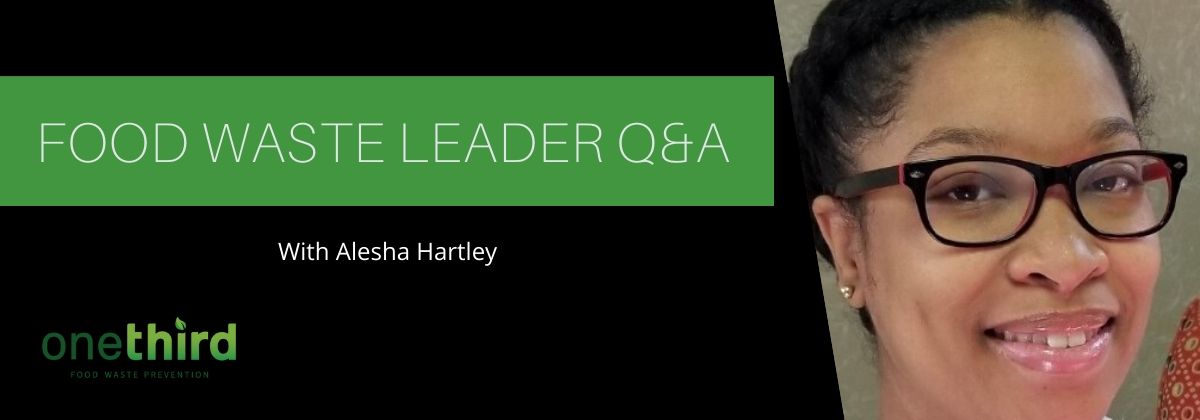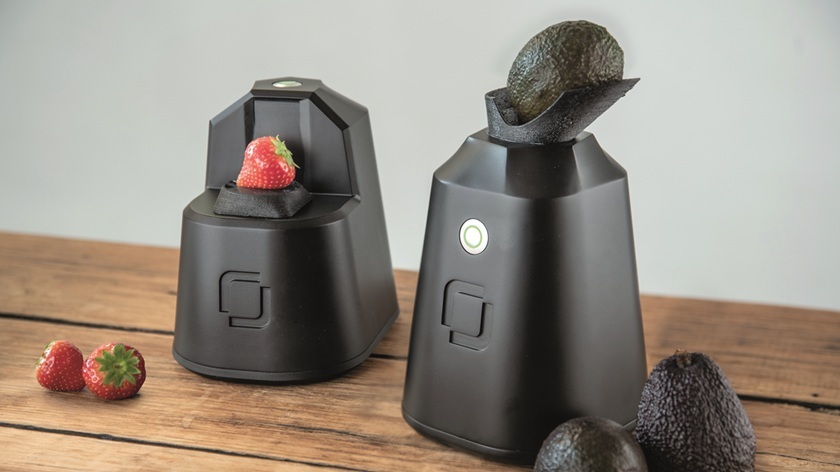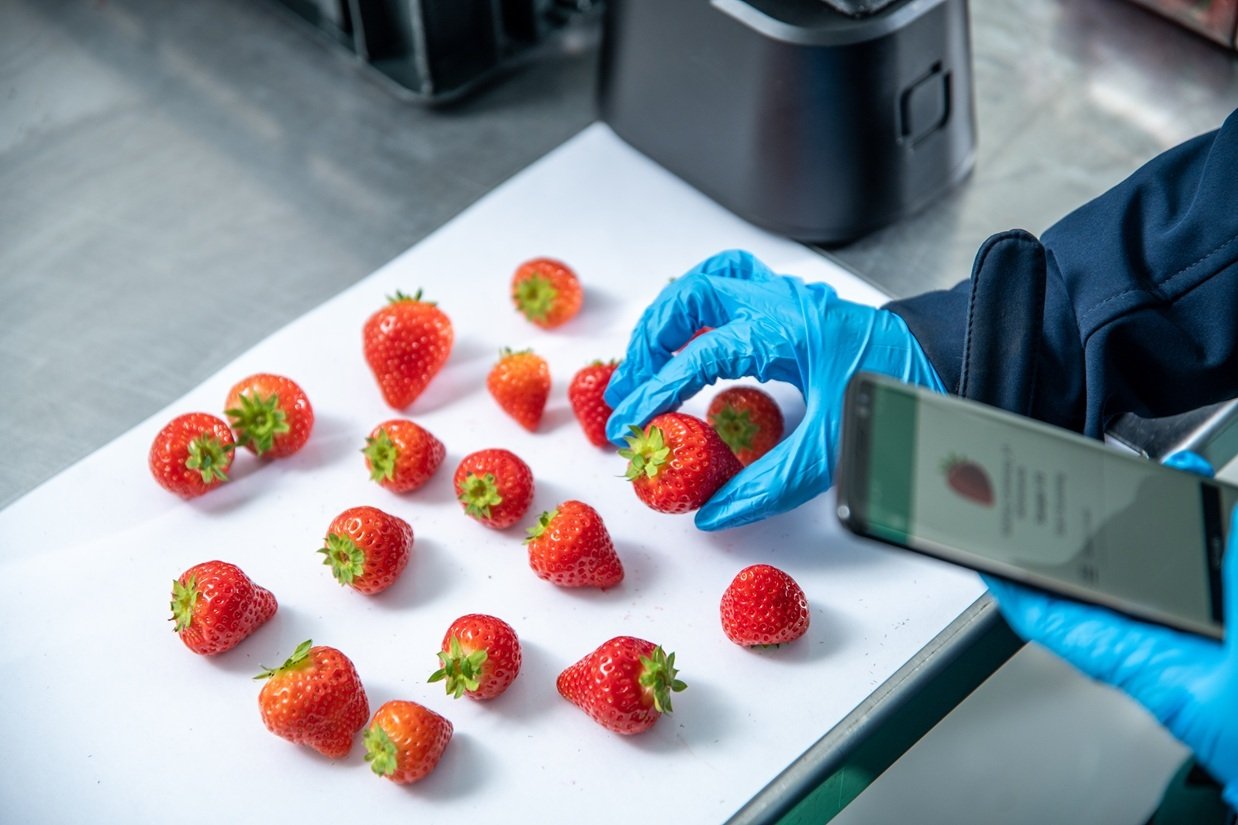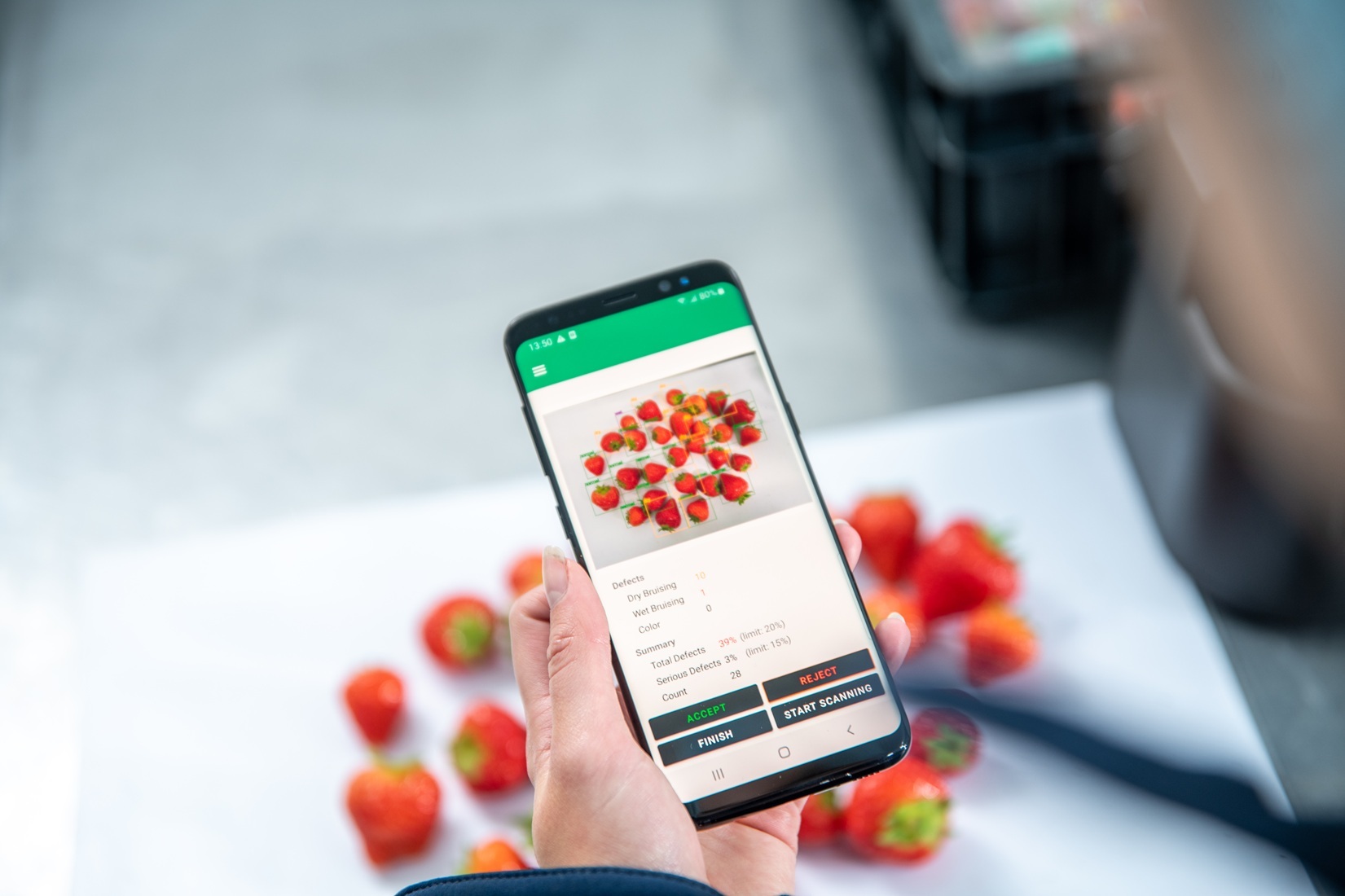
23 May 2023
doorOneThird
We sat down with Alesha Hartley, a sustainable food systems advocate, to talk about the food waste issue, how everyone can help, and the future of the food system.
Q: What’s your background and experience with sustainable food systems?
I worked in the food and beverage industry for a long time as a pastry chef, where I saw a lot of food waste firsthand in hotels and restaurants. Because of this I decided to transition to the sustainability side of the food system and have since received my Master’s Degree in Food Studies from NYU.
I have worked on many food waste and sustainability-related projects and I have volunteered as a food waste advisor.
Q: What’s your motivation for working to reduce food waste?
There are four reasons why I’m trying to reduce food waste. To help hungry people, to benefit the environment, to help companies save costs from wasted food and to help generate economic activity.
Q: What’s your proudest accomplishment in this space?
My proudest moment was volunteering for the sustainability board in my town. The board consisted of multiple stakeholders, including members from the municipality. I was able to present food waste reduction strategies for use in local schools. I was connected with a local teacher and taught her how to do an ad-hoc waste assessment to gather data to add to our presentation to the Board of Education.
This made me proud because I could teach someone something and they could take this knowledge to others- creating a butterfly effect that activated others. Through this experience, it gave me great joy to hear that the students got excited about reducing food waste.
Q: What is the most shocking thing you’ve learned while fighting this issue?
It’s hard to pick just one because there are so many.
The first that comes to mind is that food waste occurs in every country, including developing ones. In developed countries, it’s more common for waste to occur at the end of the supply chain while developing countries suffer loss in the storage and distribution phases of the supply chain.
The next that sticks out is that date labels are not indicative of food safety, but rather food quality. This has lead to a huge amount of confusion and wasted food.
Q: What do you think it will take to halve food loss and waste by 2030?
The coronavirus pandemic has upended a lot of the data that was being collected. Regardless, it will take a coalition of everyone in the supply chain and people of multidisciplinary educational backgrounds coming together. It will take a collective and diverse effort from people including consumers and entrepreneurs to create lasting change.
For example, including people with a non-traditional background in Food Studies, HR, or Educational Design would provide benefits. Governments must play a role in solution development to unlock new opportunities and provide incentives for reducing food waste.
I want everyone to know that it is DOABLE. Many people think of sustainability as unattainable or something far off in the distance, but we all can just take baby steps first. Is baby steps for you just a new recipe to use broccoli stems? It’s an improvement.
Start where you feel you can create the biggest impact for the least effort. Then build upon those baby steps every time you incorporate another form of sustainability to your life. It does not have to be expensive. People have the power to change if they’re willing to and are enabled to.
(Author’s note: We have created the 30 Day Food Waste Challenge so anybody can learn new ways to reduce food waste)
Q: Let’s say we meet the UN’s goal and halve food waste by 2030- what will still need to be done?
We will still need to keep doing the same thing as we did in the first half. We will not be done. We should celebrate, but continue and remain diligent.
If we get to 100% waste reduction we have to set up systems to maintain it. It’s like working out. If you stop once you reach your target weight then you will gain back the weight you lost.
To stay at 100%, it will be based on sustainable, diverse supply chains with increased diversification of the food we eat. This will improve supply chain resiliency in both developed and developing countries. We also need to keep coalitions funded and not give up! Consumer education campaigns must also be continued to teach the new people that are born.
Q: Where do you think shelf life prediction could play an impact in areas you have worked in?
This could be a game-changing disruption. Date labeling is subjective and not scientific. If we can leverage this type of technology to better pinpoint when an item will expire, then that has the potential to support a date label’s ability to then reflect a food’s level of SAFETY.
An important note of caution is it has to be accurate. Otherwise, it could contribute to food waste.
However, it could have immense benefits. One example would be informing the procurement manager of a restaurant that an item is near expiration. They can then inform the chef who can then get a special out immediately to get it sold and in the belly of customers.
Q: Do you feel any other messages are important alongside reducing food waste?
We all need to think about strengthening and creating resilience in the food system. This includes not only economic development, but also creating biological diversity. We are only eating a few crops. Diversity helps farms and helps us get more nutrients in our diets.
We need to seek out advice from indigenous partners. They have been cultivating this land for thousands of years and are great stewards of it.
The best way for consumers to help is to educate themselves on what indigenous crops are. Then vote with your fork (and dollar) because stores carry what people want to buy.
Q: What is one thing you wish everyone would do or at least consider?
What is the smallest baby step you can start with right now and incorporate? Even if you don’t believe in climate change, what is one thing you can do to help the environment or live a healthy life for yourself?
In terms of food waste, meal planning is my recommended first step. We tend to pick up more than we actually need. Shop with a list and meals in mind that you know you will make so you don’t overbuy.
Q: Do you have any closing words?
Food insecurity is real. Climate change is real. Reducing food waste can help both of these. With the COVID-19 crisis, food insecurity will only get worse. We need to get food into the bellies of people in need. Tackling food insecurity and waste will bring about a sense of pride in doing something bigger than yourself and doing your part as a human to help the human race move forward.
Q: If people want to get into contact with you, what is the best way to reach out?
Contacting me through LinkedIn would be my preferred method of contact.
Thank you Alesha for the meaningful conversation about sustainable food systems. To learn more about how you can make an impact, visit our blog.


